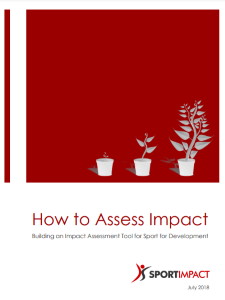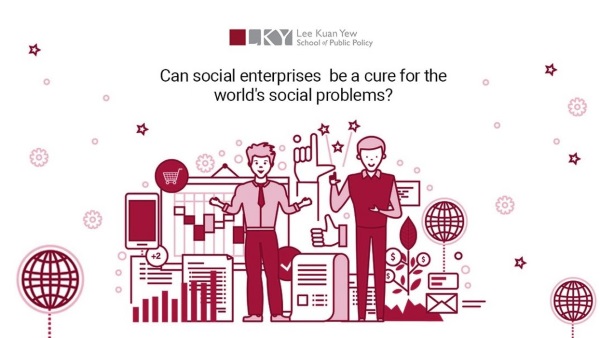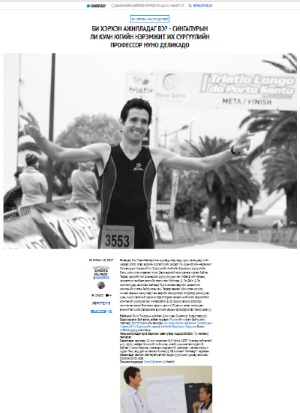The post How Biotech Firms Can Improve Cross-Functional Collaboration appeared first on Pluris.
]]>Optimising the R&D-to-commercialisation handover process is crucial for the survival of young biotech companies.
While many sectors were dealt a punishing blow during the pandemic, Covid-19 ushered in a boom in the biotech industry. Biotech start-ups raised US$34 billion globally in 2021, double the figure in 2020, and the worldwide market size is expected to grow nearly 14 percent per year from 2022 to 2030.
But though the industry is flourishing, many smaller firms could remain one-trick ponies that only produce a single product, while others may never bring an asset to market. Indeed, around 90 percent of drug candidates fail to make it to the commercialisation stage.
Read the article at INSEAD Knowledge.
The post How Biotech Firms Can Improve Cross-Functional Collaboration appeared first on Pluris.
]]>The post Who’s Afraid of the Experience Economy? appeared first on Pluris.
]]>Great brand experiences drive better business outcomes, during the pandemic and beyond.
(…)
Yet in Kobe’s experience, transitioning to the experience economy raises resistance in most established companies. Corporate leaders are uncomfortable reconfiguring so much of their business around something as fickle and unquantifiable as human emotion. That’s why he and Roger Lehman, a trained psychoanalyst, wrote Return on Experience, a monograph that alternates full-colour imagery of Eight Inc.’s most iconic projects with Q&A-style chapters exploring how and why great experiences improve business outcomes. Kobe and Lehman also delve into themes such as risk, complexity and empathy that are central to the experience economy.
Read the article at INSEAD Knowledge.
Purchase Return on Experience here.
The post Who’s Afraid of the Experience Economy? appeared first on Pluris.
]]>The post The Real Power of a Good Framework appeared first on Pluris.
]]>The value isn’t in the order it imposes, but in the inquiry it elicits.
The transformations organizations have to make in this digital age have greatly increased their perceived levels of uncertainty. We’re in a period of change where people not only feel they don’t know the right answers, they aren’t even confident they are asking the right questions. So, the first job is helping teams get to the better questions that allow them to get to grips with the problem they need to solve. How do you get people thinking outside their current frame of reference, and seeing a problem space with new eyes? It turns out, based on our experience, just presenting people with a logical framework that is new to them dramatically changes the questions they ask.
Read the article at the DruckerForum.
The post The Real Power of a Good Framework appeared first on Pluris.
]]>The post Marked for Disruption, Deep in Denial: Law Firms at a Crossroads appeared first on Pluris.
]]>Two words – Amazon Law – encapsulate the beginning of a disruption which will have consequences not only on a single industry but also at a societal level. An unconscious threat to the identity of one of the world’s oldest professions starts to creep in from different angles.
Read the article at INSEAD Knowledge.
The post Marked for Disruption, Deep in Denial: Law Firms at a Crossroads appeared first on Pluris.
]]>The post How Organizational Change Disrupts Our Sense of Self appeared first on Pluris.
]]>Leaders can better manage large-scale transformation by helping employees adapt to new identities rather than new tasks.
In a recent workshop, we assembled a group of managers involved in large-scale digital transformation initiatives in their various organizations. As part of the discussion, we first asked them how they would describe their roles in those change initiatives. (…) Next, we asked them to imagine the digital transformation really taking hold and to name roles that would be most valuable in driving that success. And here was the interesting disconnect: For the most part, their answers to the two questions were different. Evidently, if these managers wanted to have a meaningful impact on their organizations’ futures, they would have to do some role adjustment.
Read the article at the MIT Sloan Management Review.
The post How Organizational Change Disrupts Our Sense of Self appeared first on Pluris.
]]>The post How Leadership Can Emerge From the Trauma of History appeared first on Pluris.
]]>Read the article at INSEAD Knowledge.
Based on the article on Frontiers in Psychology: Collective Traumas and the Development of Leader Values.
The post How Leadership Can Emerge From the Trauma of History appeared first on Pluris.
]]>The post Collective Traumas and the Development of Leader Values appeared first on Pluris.
]]>Read the full article at Frontiers in Psychology.
The post Collective Traumas and the Development of Leader Values appeared first on Pluris.
]]>The post How to Assess Impact appeared first on Pluris.
]]>Impact assessment may not be rocket science, but it is also not the most linear process. Unlike financial accounting, there are not yet Generally Accepted Impact Assessment Principles to follow. Or “impact accountants” that we can hire to prepare our impact reports. That may explain why, while agreeing assessing impact is important, many organizations still don’t do it and hesitate to make it a true priority.
Contents:
1. Identify Objectives
2. Define the Theory of Change
3. Choose Indicators
4. Collect Data
5. Analyze Data
6. Report Impact
7. Take Action
Click here or the image to read.
The post How to Assess Impact appeared first on Pluris.
]]>The post Global-is-Asian: Social enterprises, a possible cure for the world’s societal problems? appeared first on Pluris.
]]>The post Global-is-Asian: Social enterprises, a possible cure for the world’s societal problems? appeared first on Pluris.
]]>The post How I Work appeared first on Pluris.
]]>here the English version.
The post How I Work appeared first on Pluris.
]]>


